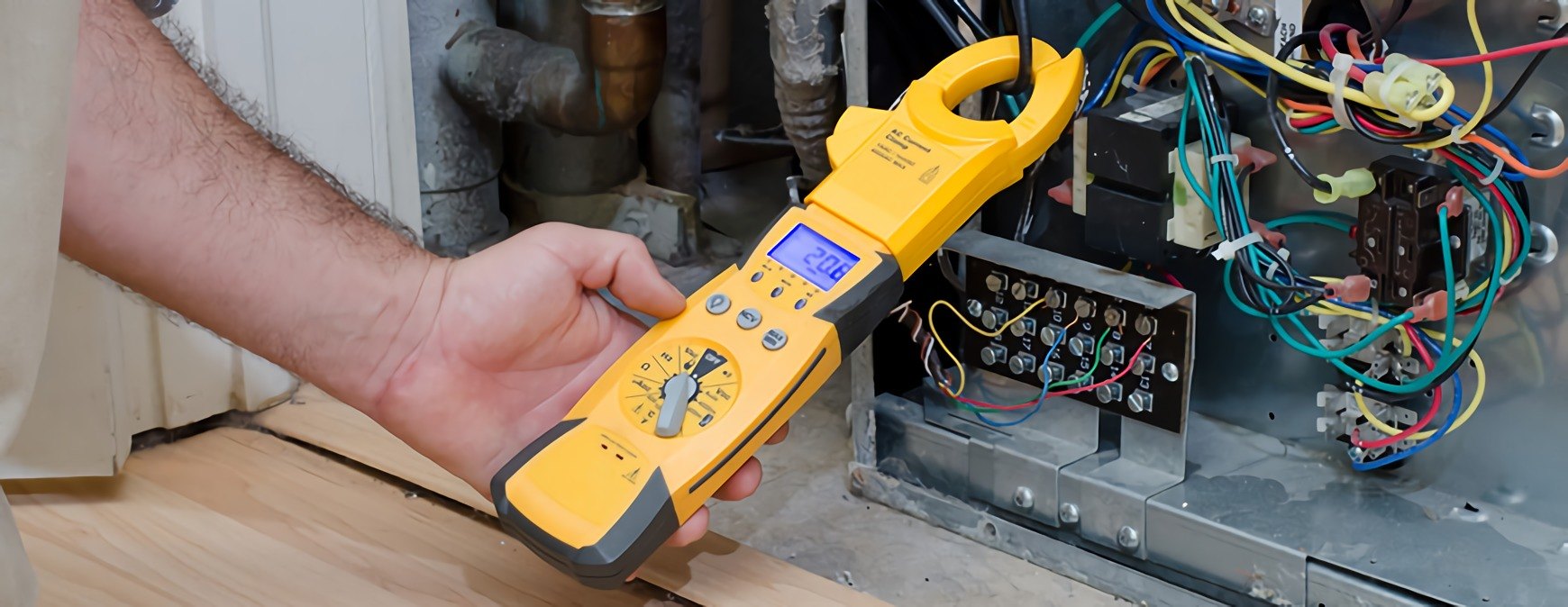RSI is a Great Training Option for Everyone
Learn more about how we can prepare you to advance your career.
Mastering new technologies is important for HVAC workers as heating and cooling equipment is becoming increasingly sophisticated and energy efficient. However, high efficiency units aren’t the only changes shaping the field. As consumers are looking for to save money and energy, HVAC workers need to be responsive. Smart technology, mobile service (predicted 40-percent this year), time saving software are transforming the modern HVAC technician’s tool kit in unexpected ways. 1
4 HVAC Technology Trends to Watch
1. The Internet of Things
The Internet we all know and love is actually a network of broadband cable and wireless connections between different computers. 2 Now that so many devices are equipped with network connectivity, an “Internet of Things” (IoT) has emerged, allowing thousands of appliances to communicate. Think smart refrigerators, smart TVs, and smart watches. Many homeowners already benefit from smart thermostats, which allow them to control indoor climates remotely from a smartphone.
HVAC technicians can take advantage of the technology to do their jobs better, too. The IoT enables system data collection and predictive maintenance. For example, skilled HVAC technicians may spot subtle warning signs that an air conditioner will need repairs soon. Predictive maintenance software could make it easier to diagnose and address malfunctions and avoid costly repairs or replacements. 3
2. Mobile HVAC Applications
Looking for a way to boost your HVAC business? Yes, there’s an app for that too. From marketing your services on social media to helping individual customers select the perfect HVAC system, the technology you need might already be in your pocket. Smartphone apps for HVAC professionals include Apple and Android software that helps:
- process payments
- design virtual HVAC systems
- answer customer questions
- keep track of key business statistics
3. Smart HVAC Equipment
In fact, smart HVAC equipment may become especially lucrative for HVAC businesses in the years to come. According to IndustryARC, intelligent sensors, meters, thermostats, and other intuitive HVAC components are essential parts of “smart buildings” and may contribute to the industry reaching a value of $200 billion by 2020. Computers are already changing the industry’s dynamics by communicating and controlling one another, including features that pre-cool or pre-heat spaces, conserve energy during down times, synchronize with smartphone apps, and more. 4
Get Started on the Path to a New Career
Fill out our form to learn how we can help you change your life.
4. Advancements in HVAC Software
HVAC software can help boost efficiency and organization for an HVAC business or contractor. Some examples of modern service technician software include automated alerts for appointments, billing software that documents services and sends out notices, and even trackers that monitor each truck. As productivity and management software becomes more intuitive and easy to integrate, it could help HVAC professionals make faster, more informed decisions, and communicate better with customers.
Tracking Industry Innovation
As the industry continues to evolve, staying current with new technological trends could help you stay competitive. HVAC technology is increasingly becoming more sophisticated, so HVAC technicians studying Refrigeration Technologies might benefit from some of these exciting new developments in technology.
Additional Sources
1 – http://www.achrnews.com/articles/132769-ways-the-service-technicians-job-is-changing
2 – http://techterms.com/definition/internet
3 – http://www.achrnews.com/blogs/16-guest-blog/post/131684-how-predictive-maintenance-will-change-the-future-for-hvac-technicians
4 – https://www.whatech.com/market-research/construction/177480-hvac-equipment-market-estimated-to-reach-usd-200-billion-by-2020-according-to-new-research-report
This blog has been labeled as archived as it may no longer contain the most up-to-date data. For a list of all current blog posts, please visit our blog homepage at https://www.rsi.edu/blog/




